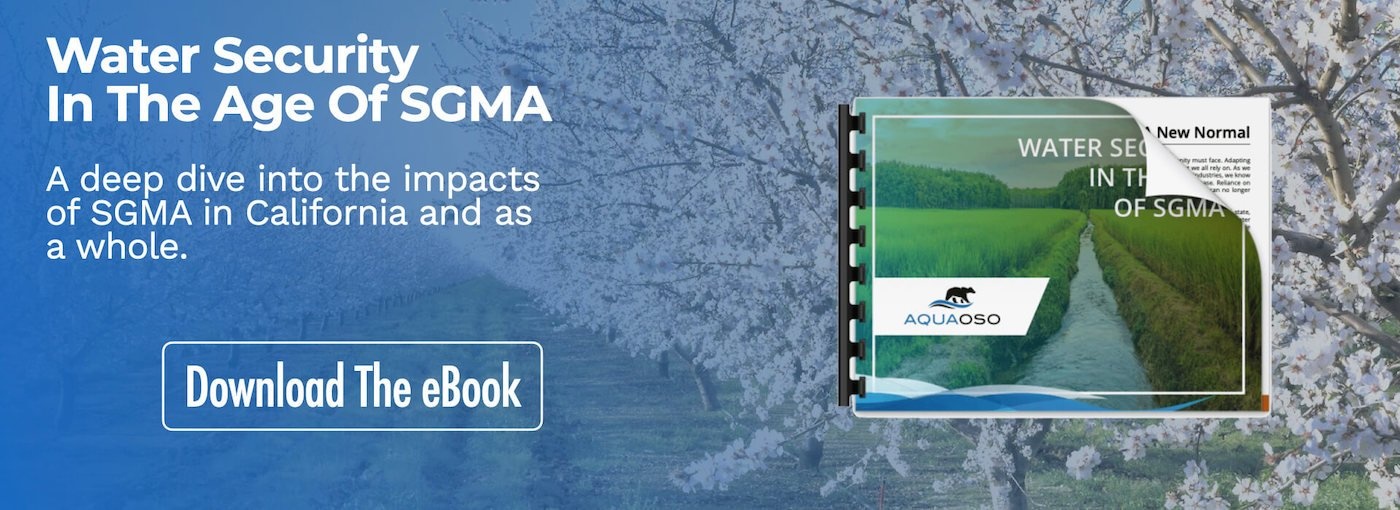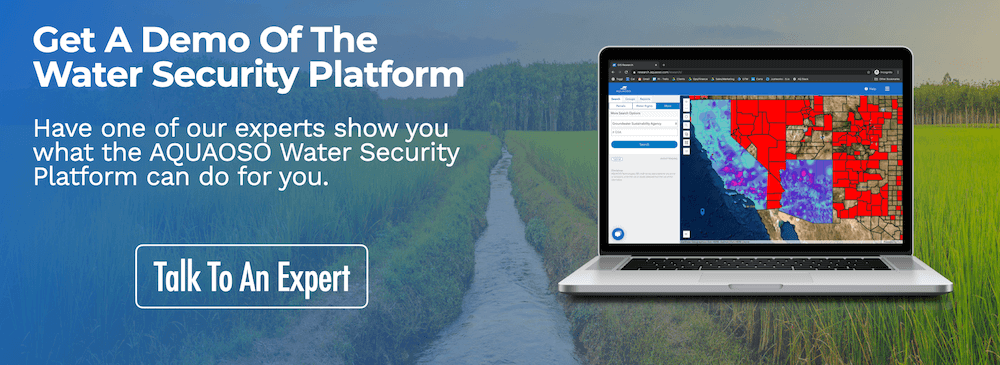Impact Investing in Agriculture – Mutual Benefits & Acceleration with Data
Impact investing has been growing at an unprecedented pace. In 2020, over $20 billion was invested in impact funds in just the first two quarters of the year – on track to match last year’s investments and then some. Researchers have determined that sustainable investments are not only more ethical – they’re also more profitable:
‘[W]e find a remarkable correlation between diligent sustainability business practices and economic performance…. When investors and asset owners replace the question ‘how much return?’ with ‘how much sustainable return?’, then they have evolved from a stockholder to a stakeholder.” – Social Science Research Network
While impact investing can play a key role in many sectors of the economy – from clean energy to healthcare – impact investing in agriculture is of particular importance. As the world’s demand for food increases, new infrastructure, farming technologies, and water conservation methods will be needed to ensure a stable food supply.
With sustainable agriculture expected to be an $872.7 billion industry by 2020, there’s a real opportunity for investors to make a difference without sacrificing ROI.
This article takes a close look at impact investing in agriculture, and how it can be accelerated with access to better data.
(Part of our Agriculture Investing Guide)
What Is Impact Investing?
Investopedia defines impact investing as aiming to “generate specific beneficial social or environmental effects in addition to financial gains,” by using “money and investment capital for positive social results.”
However, it also makes a distinction between several related types of investments:
- ESG (environmental, social, and governance) investments are scored based on factors like natural resource preservation, pollution, and animal welfare, but are still primarily focused on financial performance.
- SRI (socially responsible investing) applies stricter ethical guidelines so as to avoid investing in companies that harm human rights or the environment.
- Impact investing takes a more proactive approach, actively investing in funds or companies with beneficial goals, even if their success is uncertain.
In other words, there are multiple ways to approach ethical and sustainable investing, depending on an investor’s risk tolerance and level of engagement.
Why Should Impact Investors Focus on Water and Agriculture?
There are dozens of sectors that impact investors can focus on, but investing in water and agriculture can result in an especially dramatic impact. That’s because water is a multi-impact investment, linked to “the agri-food value chain, industrial productivity, healthcare, renewable energy, ecosystem services, and biodiversity.”
An article in the Oxford Business Review claims: “As groundwater, water systems, and water infrastructure face increased stress, impact investors look to the water sector as an opportunity to achieve outsized, uncorrelated returns while maintaining the integrity of their environmental, social, and governance (ESG) mandate.”
Because of its key role in the Water-Energy-Food Nexus, agriculture can be either a major contributor to climate change – or a key solution to it. A study by the Food and Agriculture Organization determined that, without intervention, the world only has 60 more years of reliable harvests before its best soils are degraded:
“Soils play a key role in absorbing carbon and filtering water…. Soil destruction creates a vicious cycle, in which less carbon is stored, the world gets hotter, and the land is further degraded.”
By investing in more efficient farming methods and water conservation technologies, investors and ag professionals can reduce the carbon footprint of agriculture as a whole. Additionally, impact investors who take water into account will face less financial risk than those who don’t, as water scarcity issues are already putting long-term investments at risk.
Investors and banks will face increasing pressure to show that their risk mitigation plans take climate change and other climate-related risks into account.
How Impact Investing in Agriculture Can Be Accelerated
Despite increased interest in impact investments, there are still massive funding gaps in both water and agriculture. And according to an analysis by the Environmental Defense Fund, “U.S. lenders currently lag the broader financial sector in assessing climate risk and incorporating it into risk mitigation strategies.”
Accelerating impact investing in agriculture will require a multi-pronged approach. First, governments, nonprofits, and other stakeholders can apply a combination of financial incentives, including ”water pricing, water trading, payments for watershed services, subsidies, insurance, and voluntary agreements.”
Without incentives, growers themselves may be unwilling to switch to new technologies or farming methods due to up-front costs and uncertain ROI. A study in Nature reports that “in the long run, one of the strongest motivations for farmers to adopt sustainable practices is perceived benefits for either their farms, the environment, or both.”
The Role That Lenders Can Play
Second, lenders and investors can put pressure on farmers to use sustainable water practices – and support them in these efforts. The EDF writes: “there are several ways in which agricultural loans currently create disincentives for farmer borrowers who want to adopt conservation practices. They include information gaps or lender unfamiliarity with the return profiles of the practices … and loan terms that do not align with the transition to conservation practices or accord value to them.”
If lenders, agriculture banks, and farm credit unions can help facilitate the shift to more sustainable practices, it would “allow the value of resilient agriculture to be accurately reflected in credit structures and pricing.” We’re already seeing this happen in parts of California, where the rollout of SGMA has made it imperative for lenders to familiarize themselves with water rights, smart water markets, and other water security issues.
AQUAOSO’s Water Security Dashboard can help by allowing lenders to price water risk directly into their portfolios. Reach out to our team of water experts here.
The Role of New Technology
Finally, it’s important to highlight the progress that has already been made with investments in new water-saving technologies. From indoor farms that use less water to drones and satellites that monitor snowpack and evapotranspiration data, increased awareness of the success of impact investing can help bring more funding to the sector.
Algorithmic trading has made groundwater markets more efficient, while cloud-based tools like AQUAOSO’s Water Security Platform cut down on the time it takes to collect and analyze water data, assisting with mitigating water risk.
Investors are already aware of the ethical case for impact investing in agriculture, but it’s become clear that there’s a sound business case for it too. Sustainable farms are more resilient to changing climate patterns and provide a longer-term ROI.
However, investors should do their own due diligence and be wary of investing in land with a high degree of water risk. By staying informed about water trends in agriculture, investors can be more confident in making decisions.
Read more about water risk in agriculture investing in AQUAOSO’s explorable guide.
The Bottom Line
Impact investing in agriculture presents a key opportunity to improve the security of the global food supply – but understanding underlying water security issues is a must. AQUAOSO’s Water Security Platform is designed to help investors with their due diligence with water risk.
Browse our resources page to download one of our free guides, or contact us directly to chat about water or request a product demo!
Recent Posts
Agcor and AgWare Celebrate 2 Years of Groundbreaking Integration, Setting the Standard in Agricultural Appraisal Efficiency
PRESS RELEASE For Immediate Release DENVER, March 21, 2024 -- Agcor, an AQUAOSO Technologies, PBC brand, a leading provider of agricultural lending software solutions, announces a significant milestone in its partnership with AgWare, a premier developer of innovative...
AQUAOSO launches Agcor – a full suite of digital tools for the modern ag lender.
PRESS RELEASE For Immediate Release Denver, CO - Today, AQUAOSO Technologies, PBC officially unveiled Agcor™ - a suite of software tools for the modern ag lender. The software is purpose-built by and for agricultural lenders to unlock the power of...
AQUAOSO’s Climate Intelligence Platform Showcased At OnRamp Conference
PRESS RELEASE For Immediate Release AQUAOSO showcases GIS Connect, a climate intelligence platform that helps US financial institutions mitigate climate risk during the recent OnRamp Agriculture conference. AQUAOSO shares their story of substantial growth as...



